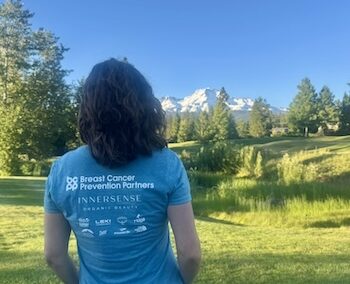Breast Cancer Fund, scientists, doctors and labor advocates call for immediate action to put breast cancer out of work
FOR IMMEDIATE RELEASE
AUGUST 06, 2015
CONTACT:
Erika Wilhelm, Breast Cancer Prevention Partners
SAN FRANCISCO – The Breast Cancer Fund opposes the newly revised Frank R. Lautenberg Chemical Safety for the 21st Century Act, or S.697, which undermines what few health protections from toxic chemicals now exist. The bill, introduced by Senators Tom Udall, D-N.M., and David Vitter, R-La., advances the interests of the chemical industry and disregards concerns of health care professionals, scientists, public health advocates and state legislators.
“More and more Americans are getting diagnosed, suffering and dying from breast cancer and other diseases linked to unsafe chemical exposures,” said Janet Nudelman, Director of Program and Policy at the Breast Cancer Fund. “The latest version of TSCA reform being considered by the Senate is fatally flawed because it weakens the already very weak protections of the current law and cripples the ability of the states to protect the health of their citizens. It is a bad bill and a gift to the chemical industry.”
S.697 and the S.697 substitute being considered continue to have major flaws that prevent the Breast Cancer Fund from celebrating real chemical policy reform, including the following:
The bill impairs state authority and creates regulatory “death zones”
The Udall-Vitter bill does not adequately protect the right of states to safeguard their citizens from harmful chemical exposures when the federal government can’t or won’t take action. The bill could set back the few current state protections in place and would stifle future state legislative or regulatory actions. Under the Udall-Vitter bill, states would be barred from passing laws once a chemical is designated as a high priority. It could then take the EPA five-to-seven years to actually put a plan in place to restrict the chemical under review. During these gaps in protection, also known as “death zones,” NO ACTION can be taken by the states on these high priority chemicals of concern.
The bill allows companies to continue to keep secrets about chemicals
Companies frequently designate basic information about the chemicals they use as “confidential business information” (CBI), which means safety data and information like the identity and function of a chemical cannot be released to the public. CBI claims are not adequately justified, even when safety data shows that the substances present a health hazard. The EPA has little statutory authority and even fewer resources to challenge these designations, so the vast majority of CBI claims are simply accepted without serious review of their legitimacy. Tens of thousands of these claims would be grandfathered in under the Senate bill, with no accountability whatsoever. To make matters worse, the Senate bill explicitly prohibits the EPA from requesting minimum data sets from chemical companies, obstructing the agency’s ability to get the information it needs to understand and effectively manage the industry it is charged with regulating.
A quarter of a million women and men will be diagnosed with breast cancer and 40,000 families will lose someone to the disease this year. Marika Holmgren, a breast cancer survivor from Half Moon Bay, Calif., says the Udall-Vitter bill jeopardizes the ability of future generations to enjoy healthy lives. “Congress needs to act to eliminate chemicals that are poisoning us. Americans have a right to live free from contamination by toxic chemicals.”
###
Breast Cancer Prevention Partners (BCPP) is the leading national science-based policy and advocacy organization working to prevent breast cancer by eliminating our exposure to toxic chemicals and radiation.



